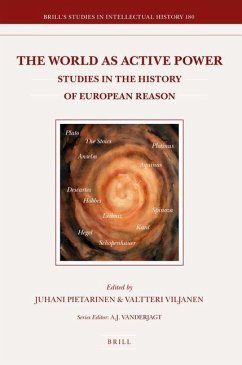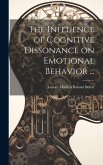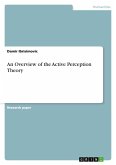What is the ultimate explanatory factor for the existence of the world, for all its changing phenomena and the enduring order found in it? In the history of Western thought, we can find a longstanding philosophical tendency to answer this question in terms of power: the universe is understood as an ordered whole produced by a rational power, that is, by the power of reason. That power is thought to be active in the sense of being capable of existing and acting in itself as an infinite, eternal, and unchangeable cause of the world. The essays in this collection discuss the idea of active power in the world-explanations of Plato, the Stoics, Neoplatonism, early and late medieval scholasticism, Descartes, Hobbes, Spinoza, Leibniz, Kant, Hegel, and Schopenhauer.
Bitte wählen Sie Ihr Anliegen aus.
Rechnungen
Retourenschein anfordern
Bestellstatus
Storno








